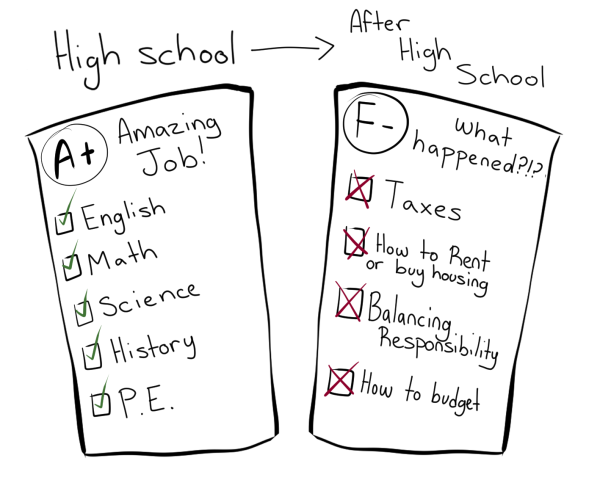Check Your Mental Health Before You Wreck Yourself
It is that time of the semester–the make it or break it point.
It is time to decide if that extra class is really worth the lack of sleep, no social life, and overall misery. Well, if any of these describes you, it is time to check in with your mental health.
Yes, mental health, and the constant struggle with it, is a widespread epidemic in college students–and it is time to normalize the conversation about it.
College is a time to discover and develop independence — who do you want to be, who have you been thus far? The inevitably bumpy journey of self-declaration comes with many failures, broken hearts, and discouragements.
During this era of hardship, priorities tend to shift in unpredictable directions, and everything that you once knew is now different.
I have lived this experience, and it felt inescapable. Along with being a full-time student, working a part-time job and doing an internship, I am also writing for the Rampage. I began to feel so overwhelmed to the point of having little to no motivation to partake in anything that I previously enjoyed and loved.
In a very short time, I became a person that I did not recognize.
My life became messy and disorganized, both mentally and physically. I soon realized that the environment that I was allowing myself to be in was also playing a role in the state of my mental health.
Instead of questioning everything that was going on–who I had become and why I felt nothing–I just passed it off as an unfortunate side effect of growing up and change.
I was wrong.
The lack of drive, carelessness, and overall disinterest in almost everything were all glaring red flags reflecting my struggling mental health.
I had no history, nor has anyone ever modeled the need to check on one’s mental health. In fact, when I was growing up, mental health was to be considered nothing other than in relation to someone with a diagnosed mental illness.
That was wrong.
Mental health includes the condition of a person’s emotional and mental well-being.
Think of it as tending to a sprained ankle. While the injury may not be publicly noticeable, you know that you tripped over that step and that the pain is very real.
There is a stigma around mental health, in which the entire month of May is dedicated to breaking with the #breakthestigma.
Nevertheless, mental health, and the staggering reality of people who struggle with it and do not understand it, cannot be reduced to a month of catch phrases followed by a hashtag.
While this hashtag that represents awareness of the topic is appreciated for its notable work, it is time to have the conversation in an everyday setting.
Check up on each other, friends and strangers. Ask someone how they are doing. Ask if they are checking in with themselves.
Checking in on mental health can be anything from discussing your mental state with a professional to catching up with a friend over a cup of coffee.
Struggling with mental health is nothing to be afraid of or to worry about.
The struggle with mental health happens in the most severe situations, as well as a result of a minimal action.
There are no specific guidelines to taking care of your mental health. All a person can be expected to do is be aware of their mental state: what affects their mood, are they developing healthy relationships, are they in an encouraging environment, and so on.
Most importantly, how you feel matters. So if you feel like you are not doing okay, and you happen to get lost in this especially busy point in the semester, look around because you are not alone.
It is a reality for everyone and what better place to connect with someone who is on the verge of a breakdown than the most stressful place itself: college.

Hannah Lanier is the 20 year old New Editor and reporter for the Rampage at Fresno City College. Born and raised in Fresno, California, Lanier is the youngest...





